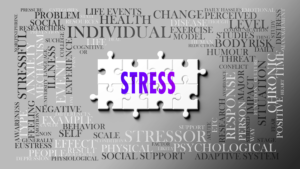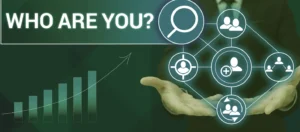Our world has developed an insatiable quest for knowledge. Collectively mankind seems to be progressing and advancing in developing and acquiring knowledge at a tremendous rate.
The “knowledge doubling curve” offered by Buckminster Fuller in his 1982 book, Critical Path, seems to indicate that the sum of man’s knowledge doubled from 100 B.C. to A.D. 1700; apparently doubled again from 1700 to 1900; supposedly again from 1900 to 1950; then again from 1950 to 1970, and then again from 1970 to 1980. It is believed that by the mid 2010s, humanity had reached a doubling of knowledge roughly every thirteen months.
IBM reckoned that by 2020, using Fuller’s principle, the sum total of knowledge on earth would be doubled every twelve hours. They attributed this to “the build-out of the internet of things.”
It is challenging to understand what comprises this knowledge and how it is measured, but in our modern age of electronic connectivity there are an estimated 50 billion devices that can interact with humans and each other to exert tremendous pressure to keep up with the astronomical flow rate of information emitted constantly.
But what kind of knowledge is being produced at such a rate? Is it all useful or is it useless? Does that knowledge help us or hinder us in our daily lives? Does it inspire or distract us?
Besides the Literary, Financial, Biological, Technical, Corporate, Social, Military, Entertainment, Athletic or any type of knowledge we can acquire, what makes up the bulk of the knowledge that is allegedly being doubled twice daily?
Local IQ has updated what an “Internet Minute” looks like in 2024 – here is the transfer of information every 1 minute, for 1,440 minutes per day, for 525,600 minutes in 2024:
- 231 million e-mails are sent each minute.
- 3.47 million YouTube videos are watched every minute.
- 625 million TikTok videos are viewed every minute.
- 16.2 million texts are sent each minute.
- 350,000 tweets per minute are sent on X.
- 44 million Facebook livestreams are viewed each minute.
- 6.3 million Zoom minutes per minute.
- 3.5 billion Snaps created each minute.
- 6.3 million Google searches occur per minute.
Additionally in every minute of every day, 6 million people are shopping online, 452,000 hours of Netflix are viewed, and 174,000 apps are downloaded.
Judge for yourself how much good and useful and helpful knowledge is “created” and “passed on” and “re-created” and “spun-off” and “redistributed every minute of every day by only human beings.
Add to this the modern phenomenon of knowledge being transferred at an astronomical rate by artificial intelligence (AI) – amoral computer/machines that can build on their programming: perhaps currently “pre-trained” with existing knowledge, but how long before AI produces knowledge on its own?
We might speak to knowledge that advances war-making ability with fearsome weapons that may bring us to the brink of extinction; knowledge in the medical field to fight endless battles curing or fixing what ails us; knowledge in technology, particularly computing that may be creating a lot of our social ills today; and so on.
There is no doubt that the world’s obsession with knowledge acquisition is profoundly affecting human beings living today. In Kevin Kelly’s book, What Technology Wants, is found a concept that we should take note of:
“I don’t think technology is neutral or a wash of good and bad effects. To be sure it does produce both problems and solutions, but the chief effect of technology is that it produces more possibilities. More options. More freedoms essentially…”
Mr. Kelly is correct in that the knowledge that produces our technology and is produced by technology today is not neutral or a “wash of good and evil” – it is complicated, it is uncontrolled, it is undirected. It will produce no more good than it will evil.
To direct and control and uncomplicate our exposure to this mix of useful and harmful knowledge that is distributed, revised, and redistributed “24/7 – 365,” there are three strategies we might consider:
1. Don’t feel the need to keep up with the all the knowledge that is constantly coming at us through all sorts of media – especially electronic, digital, and on-line.
Douglas Rushkoff in his book, Present Shock (p. 126) describes well what we are up against:
“When the social now is relegated to the multi-tasking digital environment, we may expect the results we have been witnessing: suicides, depression, higher stress, and a greater sense of disconnection.”
Not keeping up with this world’s knowledge, that is expected to double a staggering 732 times per year or more, may make us feel excluded, disconnected, and generally stressed.
We might consider cutting back on social media and reduce our time living within that artificial “electronic” or “digital” world that is so accessible and knows no sleep or bounds or limits.
2. Understand that basic knowledge in living is generally unchanging and the proliferation of “new” knowledge today is passed on with the assumption that it will change be updated and retaught in a more advanced version later.
Alvin Toffler in his 1970 book, Future Shock, predicted the following:
“The illiterate of the 21st Century will not be those who cannot read and write, but those who cannot learn, unlearn and relearn.”
That sounds quite profound and perhaps even modest, but what Toffler is suggesting is new knowledge that is learned and acted upon in the present time must be unlearned when newer knowledge comes along later (a sort of “built-in knowledge obsolescence”); that “old” knowledge must be replaced by new knowledge necessitating unlearning the old and relearning the new.
Is it any wonder we now hear terms like, “alternative facts,” “fake news,” “post-truth” and so on?
3. The Holy Bible contains the basic knowledge of why we are here, the meaning of life, how to properly live and what comes after this life. That basic knowledge is what all other knowledge should be measured against.
Yes, there are volumes of this world’s knowledge coming at us every waking minute, but all that information does not help anyone with the basic questions about life. Mankind still wallows in its problems because missing is the vital element of knowledge of God: the very basis of everything that is and why!
God could have chosen to provide us with more knowledge than what is found in the Bible. If we accept that the Word of God came to earth as Jesus Christ and became the Saviour of all, perhaps it is easier to grasp His omniscience when we read in John 21:25 this profound statement:
“And there are also many other things that Jesus did [as the Word of God, as Jesus the Christ and as the Saviour of all mankind – yesterday, today and forever], which if they were written one by one, I suppose that even the world itself could not contain the books that would be written.”
We are limited in acquiring and understanding the total knowledge base of our day, and that knowledge is subject to frequent change. The Word of God, however, is foundational knowledge that can be inculcated to our minds now and is unchanged forever.









